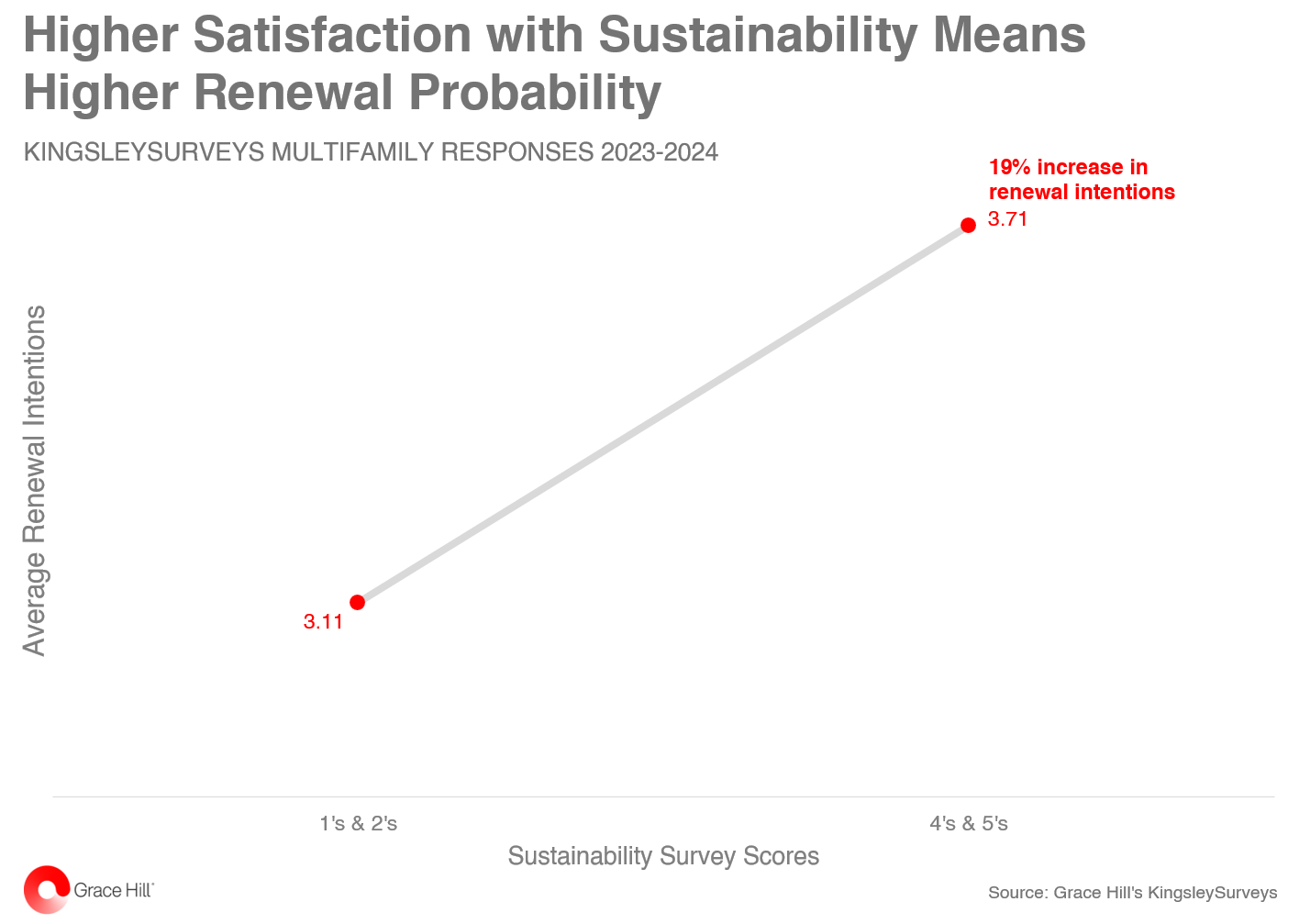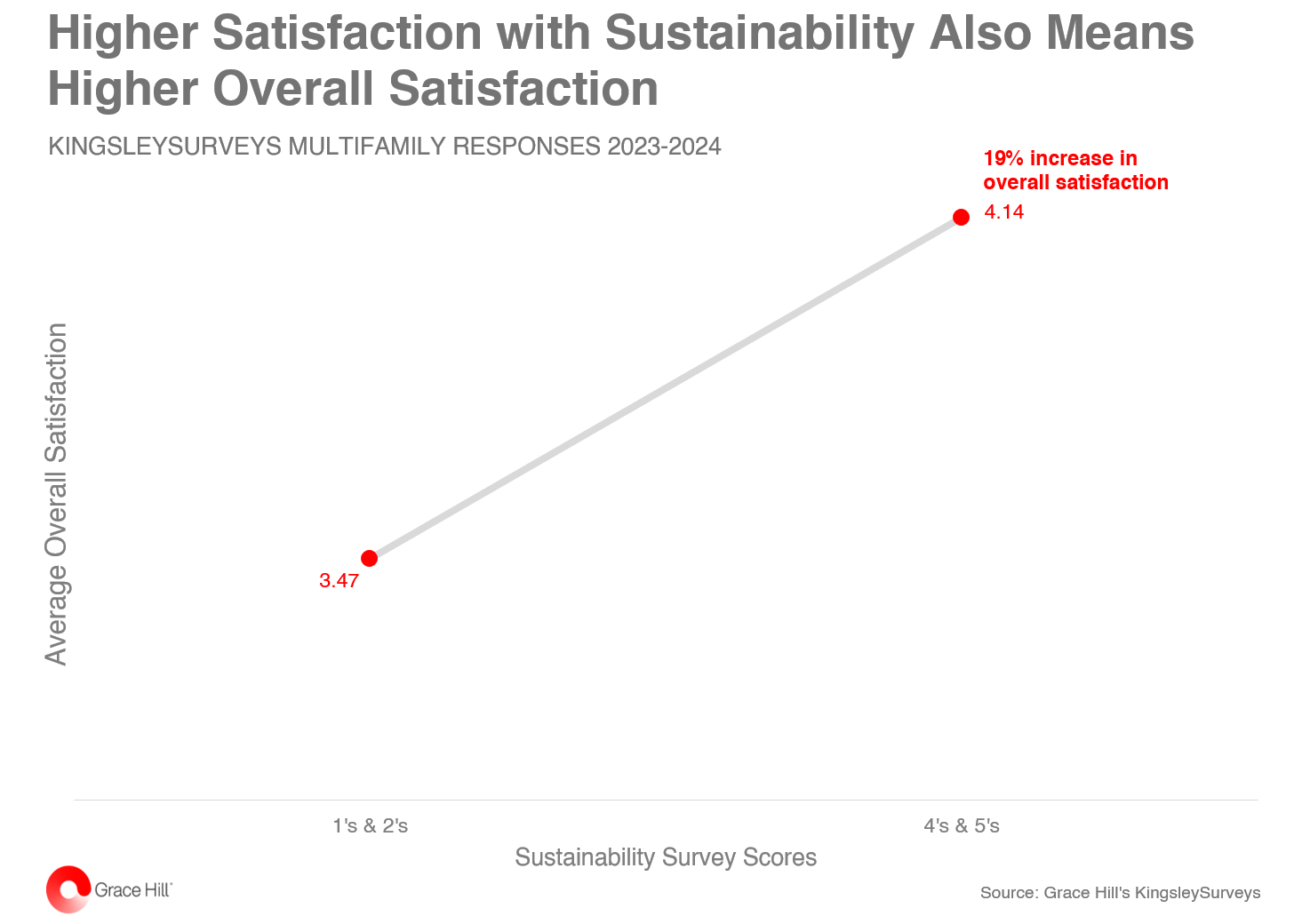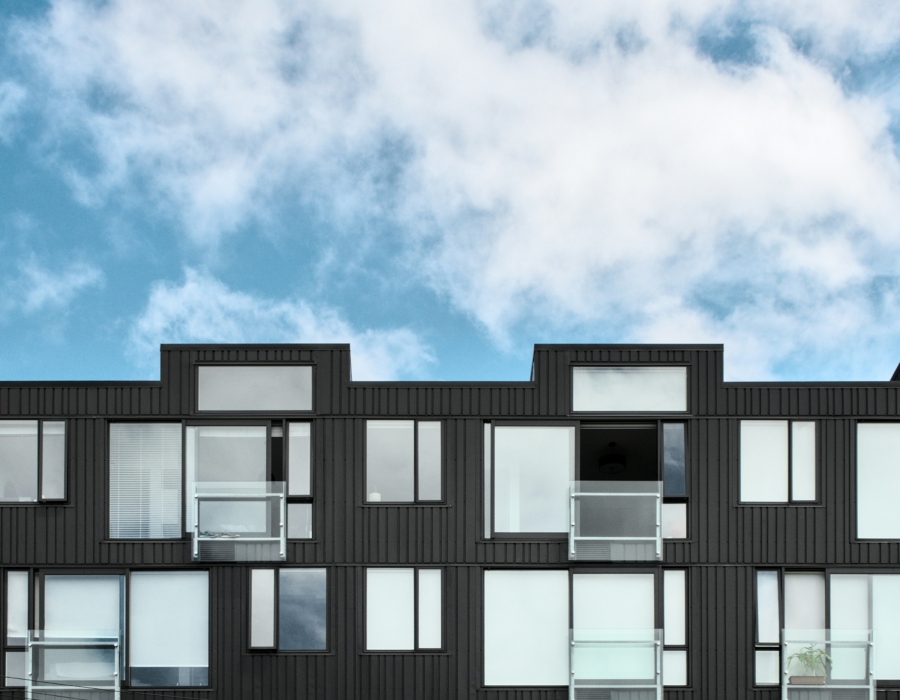Our industry is engaged in an important dialogue to improve sustainability through ESG transparency and industry collaboration. This article is a contribution to this larger conversation and does not necessarily reflect GRESB’s position.
When Sarah moved into her apartment, she wasn’t expecting to fall in love with it. Sure, it checked all the usual boxes—good location, reasonable rent—but what stood out were the energy-efficient appliances and smart thermostats, excellent indoor air quality from the high MERV rated air filters, and even an EV charging station for her car. At first, she didn’t think much of it. But over time, Sarah noticed a big difference. She realized that her utility bills were lower, she had more energy from the clean air, and she felt good knowing her lifestyle left a smaller environmental footprint. By the time her lease renewal came up, Sarah didn’t just renew — she wrote a glowing review for the property. “This is the future,” she said.
Sarah’s story is an AI-based summary of real data from resident surveys. It shows the growing trend that sustainability isn’t just about helping the planet; it’s a resident priority. Using data from Grace Hill’s KingsleySurveys, we found that sustainable practices not only make residents happier but also encourage them to stay longer in their communities.
Insights from resident survey data
Higher sustainability scores = Higher renewal intentions

The data shows that when residents believe their community excels in sustainability, they’re more likely to renew their leases. Here’s what we found:
- Residents who rated their community’s sustainability efforts highly had an average renewal score of 3.71.
- Residents who perceived lower sustainability efforts gave an average renewal score of just 3.11.
This trend was clear across multiple questions about sustainability, energy efficiency, and water conservation. The more residents valued these efforts, the more likely they were to stay. Focusing on sustainability not only saves money on energy and water costs, but it also reduces the expensive turnover costs associated with finding new residents. For property owners, this creates a win-win situation. You save money and build a more stable community.
Sustainability and satisfaction go hand in hand

There’s also a strong connection between sustainability and overall satisfaction:
- Residents who were more satisfied with sustainability reported an average overall satisfaction score of 4.14, compared to 3.47 in communities with less focus on sustainability.
- Specific features, such as energy-efficient appliances and renewable energy sources, significantly boosted resident happiness.
Residents expect their communities to be environmentally responsible. KingsleySurveys clients also ask residents to share what improvements, if any, they would like to make to sustainability. Residents often mention the importance of energy-efficient appliances, smart thermostats, and better insulation to conserve energy. At the very least, residents want to save money through these features. Meeting these expectations not only improves their living experience but also enhances how they view the property.
Why sustainability matters for property managers and owners
The data makes it clear that sustainability isn’t optional—it’s essential. When property owners and managers prioritize sustainability, they can:
- Keep residents longer: Communities with visible environmental efforts encourage residents to renew leases, reducing costly turnover.
- Enhance reputation: Green initiatives attract environmentally conscious residents and help properties stand out in a competitive market.
- Achieve ESG goals: Sustainable practices align with key ESG (Environmental, Social, and Governance) reporting metrics, such as energy savings, water efficiency, and waste reduction—important for frameworks like GRESB.
Steps to a greener community
- Understand resident priorities: Use surveys to identify which sustainability initiatives residents value most. Features like energy-efficient appliances and water-saving systems tend to have the highest impact.
- Show the impact: Communicate the results of green initiatives—for example, share how much energy or water was saved or how recycling efforts have improved.
- Engage residents: Create programs that encourage participation, such as recycling challenges or incentives for reducing energy use.
- Measure and adapt: Regularly evaluate the success of sustainability programs using feedback and metrics. Adjust as needed to maximize impact.
Moving forward
Grace Hill’s KingsleySurveys data confirms that sustainability isn’t just good for the planet—it’s also great for residents and property owners. Communities that prioritize environmental responsibility make residents happier and more likely to stay. By investing in the right green initiatives and actively involving residents, property managers can create thriving, environmentally friendly communities where everyone benefits.
Now is the time for residential real estate to embrace these changes and lead the way in building greener, happier, and stronger communities.
This article was written by Jennifer Tindle, VP of Strategic Insights at Grace Hill. Learn more about KingsleySurveys, A Grace Hill Company, here.

